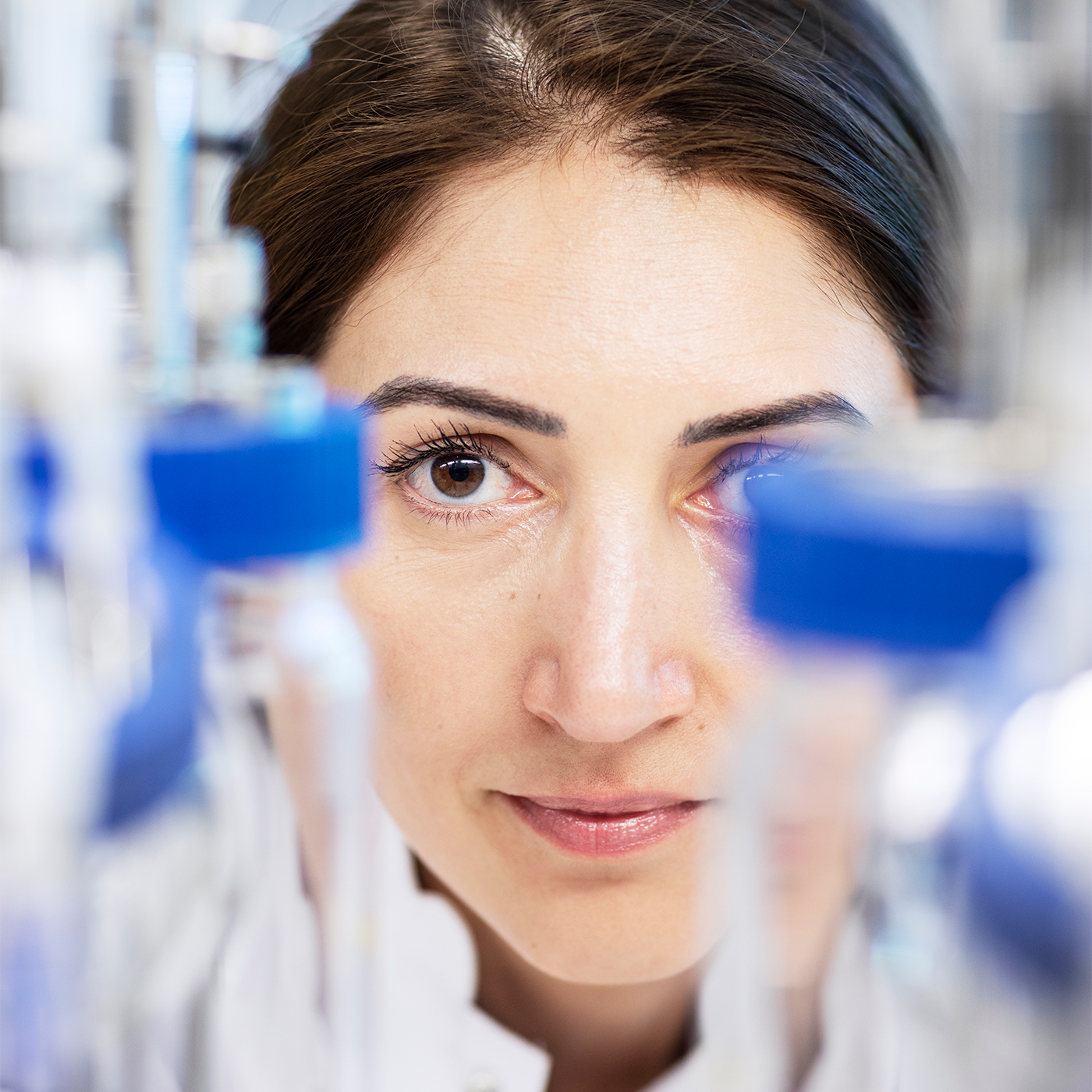Danish-led research project couples academia with industry to pave the way for sustainable production of chemicals
The Department of Engineering at Aarhus University is heading a new international and intersectoral project, which will create 100 per cent pure, natural and sustainable chemical products by mimicking the metabolism of living organisms. The project is potentially ground-breaking for one of the world's most polluting industries.

With a grant of EUR 3.7 million from the EU research and innovation programme, Horizon 2020, a Danish researcher from Aarhus University (AU) has teamed up with 21 other European industries and universities in a major project that may have a decisive impact on the future chemical industry.
The project is coordinated by Associate Professor Selin Kara, an expert in biocatalysis and bioprocess development from the Department of Engineering at AU, and it aims to replicate natural bioprocesses for use in the chemical industry; today one of the world's most polluting industries.
"Basically, with regard to what is possible to produce chemically, we’re still lagging way behind nature. In this project, we’re taking the first steps toward understanding the needs of complex multi-enzymatic reactions. In fact, nature has enormously complex and beautifully working multi-step reactions that are found in all living organisms," says Selin Kara.
Metabolism is a series of enzyme-catalysed reactions that make it possible for living organisms to grow and reproduce. Metabolic reactions therefore break down or build up the different substances necessary to ensure that the organism survives.
These reactions are organised in the so-called metabolic pathways, where a chemical substance is converted into another one through a large number of steps, and where each step is promoted by a specific enzyme.
And the perfection of these metabolic pathways is precisely what the researchers are interested in copying for industry.
"In nature, these reactions take place gradually and with different catalysts at each stage. It’s not like that in the chemical industry today. As a general rule, there is a large container with one chemical substance that is enzymatically converted into another and then treated to become a final product using a large number of costly and polluting processes; centrifugation, chromatography, dialysis, distillation, isolation, extraction, etc. The reason for this is simply that it is extremely difficult to replicate nature's incredibly complex approach. But we’re taking up this challenge in this new project," says Selin Kara.
If the researchers succeed, the project results will be ground-breaking for the design and development of a complex sequence of reactions for chemical manufacturing, and it will be possible to produce chemical substances like antioxidants and biopolymers without the polluting processes downstream in the production chain:
"We hope to be able to produce final products through different biotechnological processing approaches, one of which is continuous flow systems in which the start chemical is pumped through different reactors, each with its own enzyme-catalysed reaction. This will make the process completely sustainable. But there’s still a long way to go," Selin Kara says.
She continues:
“Successful applied science not only needs to be interdisciplinary, but should also be at the interface between ground-breaking research and industrial implementation. Therefore, the strong involvement of three large companies and ten high-tech start-ups is crucial to achieve our goals in this project.”
The project has been named INTERfaces - Heterogeneous Biocatalytic Reaction Cascades, and it offers a unique study programme, in which 14 selected PhD candidates will be trained as the next generation of European biotechnology researchers. The INTERfaces belongs to the Marie-Sk?odowska-Curie Actions (MSCA) – Innovative Training Networks (ITN) – European Industrial Doctorates (EID) Programme. Within this programme, PhD students will spend half of their study time in industry and half in academia, a doctoral training concept that is well established in Denmark.
In addition, the project will be upscaled in collaboration with the industrial sector.
A total of 9 academic institutions and 13 private sector organisations, ranging from high-tech SMEs to large-scale production companies, are taking part in the project. The 48-months project (Jan. 2020 – Dec. 2023) is headed by Associate Professor Selin Kara.
Project consortium:
· Aarhus University (Selin Kara, Coordinator)
· Graz University of Technology
· ACIB GmbH
· University of Oviedo
· University of Trieste
· University of Zaragoza
· University of Bielefeld
· KTH Royal Institute of Technology
· Elettra-Sincrotrone Trieste S.C.p.A.
· Henkel AG & Co. KGaA
· EnginZyme AB
· SpinChem AB
· ViaZym BV
· CASCAT GmbH
· NanoMyP SL
· BioPox SRL
· Micronit Microtechnologies BV
· ÆNEAM Advanced Membrane Technologies SL
· Sustainable Momentum SL
· Bumbuku Creatives BV
· Purolite Ltd
· GlaxoSmithKline Ltd
Contact
Associate Professor Selin Kara
Mail: selin.kara@eng.au.dk
Phone: +45 22378964
